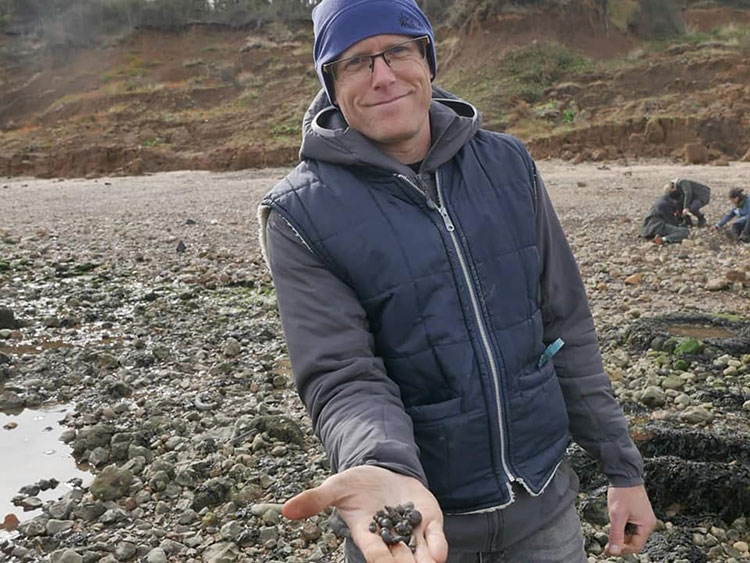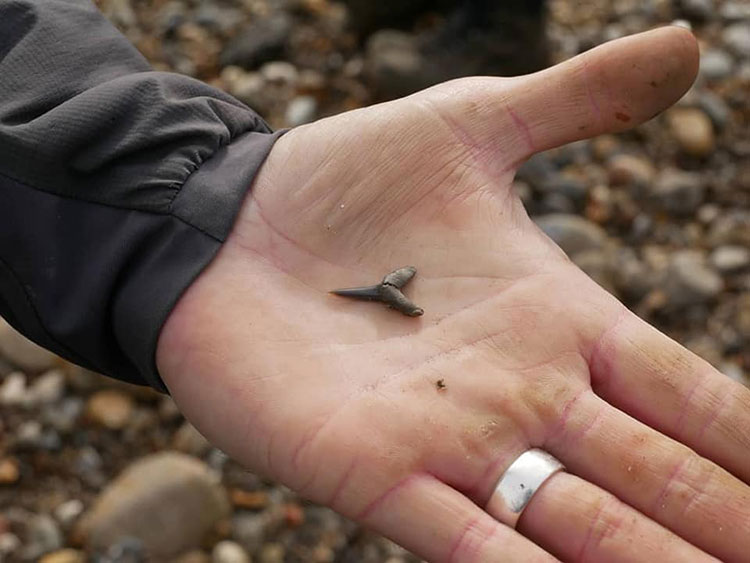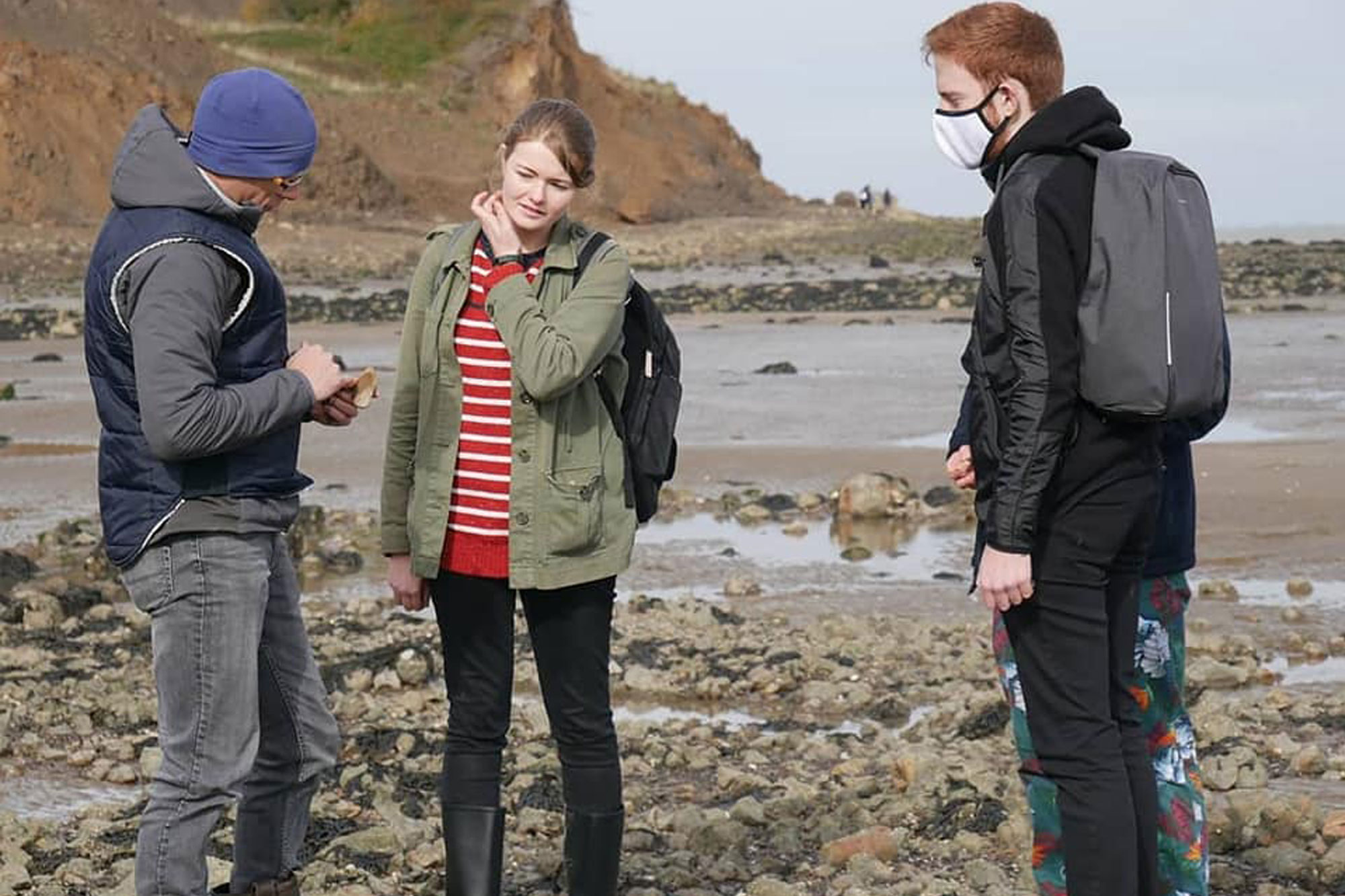The Anthropology Society (AnthSoc) recently ventured to Warden Point with Professor of Biological Anthropology, Matthew Skinner, to hunt for 50 million year-old fossils.
Warden is a small village on the north-eastern coast of the Isle of Sheppey in Kent. Immediately northwest of the village and continuing towards the west is Warden Point, a pinnacle of eroding land and muddy foreshore. Warden Point has provided one of the most productive areas for the study and collection of fossils from the London Clay. Among the finds include largely complete crustaceans, nautili, shark teeth and vertebrae, snake skeletons, bird skulls and a variety of land-sourced fruits and seeds, and much more.
Despite the government regulations limiting the capacity of the field trip, it was fantastic to be able to experience the fascinating opportunities that arise at the School of Anthropology and Conservation as well as within the Anthropology Society! Joined by a mixture of academic staff and both undergraduate and postgraduate students, the morning was a treat of various interests and skill! The exploration resulted in some very exciting finds including fossilised shark teeth, shells and branches!

Dr Skinner has been an invaluable and inspiring guiding influence for the Anthropology Society as well as the School and its multitudes of students: it is with his support and interest in growing a community of anthropology enthusiasts that we have continued to progress. I feel that we can speak for many when I offer thanks to Matt for his passion and instruction. Trips like this have assisted in making many of our times here at the School of Anthropology and Conservation a most memorable one.

Activities like these are just a small glimpse at the possibilities that being an Anthropology student at the School of Anthropology and Conservation can provide!
Text by Felicia Dean who is studying in the final year of her BSc in Anthropology.

